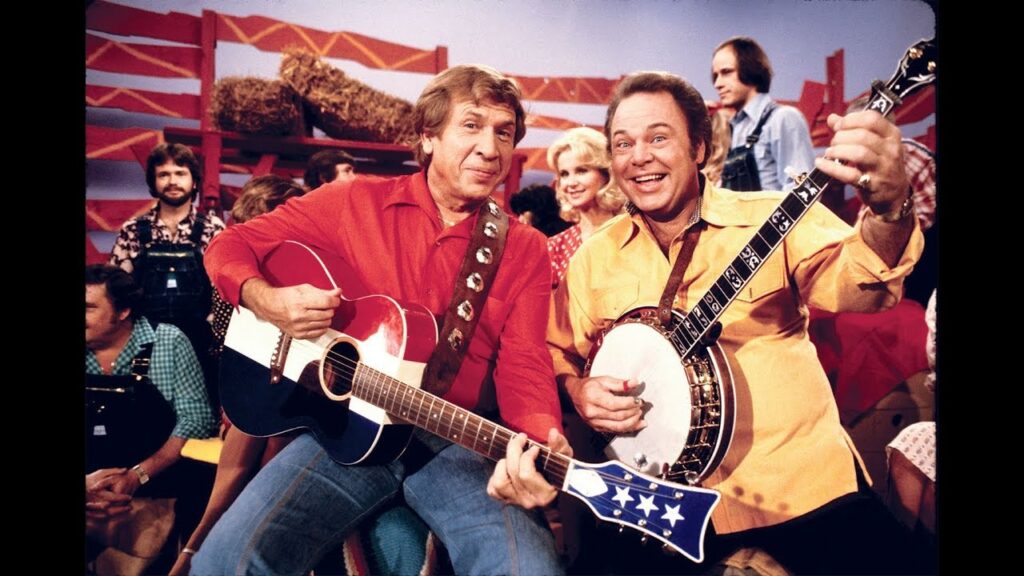
A Yuletide Masquerade That Blurs the Line Between Childhood Wonder and Adult Realization
When Buck Owens released “Santa Looked a Lot Like Daddy (Daddy Looked a Lot Like Him)” in 1965, nestled within the holiday compilation Christmas with Buck Owens and His Buckaroos, it arrived not as a whimsical novelty, but as a honky-tonk sleigh ride through the liminal space between innocence and revelation. Though it didn’t ascend to the upper echelons of the charts upon its debut, the track carved its own peculiar niche in the American Christmas canon—hauntingly humorous, unmistakably twangy, and unshakably honest. Over the decades, it has endured far beyond its initial release, an artifact of Owens’ unique ability to fuse playfulness with poignancy under the tinsel-draped roof of Bakersfield country.
At first glance, “Santa Looked a Lot Like Daddy” plays like light-hearted holiday fare. A young child sneaks down the stairs on Christmas Eve only to catch “Santa” placing gifts beneath the tree—and in a moment of confused recognition, realizes that Santa bears an uncanny resemblance to his father. It’s a lyrical conceit that might seem simple or comedic on the surface, but beneath its charming veneer lies a more textured emotional undercurrent. The song is both a literal tale and a metaphor for a pivotal point in childhood: that bittersweet collision of myth and reality. When fantasy begins to fray at the edges and children start to recognize familiar faces behind cultural rituals.
Owens, always a master of economy in his songwriting, delivers this theme with an arresting blend of warmth and subtle irony. His vocals are imbued with both mirth and melancholy—he doesn’t overplay the joke, nor does he descend into saccharine sentimentality. Instead, he straddles a line that only someone with Owens’ intuitive grasp of human emotion could walk. The Buckaroos’ instrumentation further underscores this balance: crisp guitar licks sparkle like frost on a windowpane, while Don Rich’s harmonies lend an aching sweetness that deepens with each listen.
Thematically, this song is quintessentially American—rooted in domestic imagery, steeped in tradition, yet quietly questioning what those traditions mean as we grow older. In Owens’ hands, “Daddy” isn’t just playing Santa; he becomes a symbol of all the ways adults sustain childhood magic while also being unwitting participants in its unraveling.
And perhaps that’s what gives “Santa Looked a Lot Like Daddy” its enduring power. It doesn’t merely entertain—it remembers. It remembers what it felt like to believe completely, then doubt suddenly; to laugh at the absurdity of grown-up pretenses while still longing for them to be true. In doing so, Buck Owens didn’t just write a Christmas song—he wrote a coming-of-age tale dressed in red velvet and boots.
This is holiday music not just for firesides and family gatherings, but for anyone who’s ever caught a glimpse of truth peeking out from behind the curtain of wonder—and still smiled anyway.